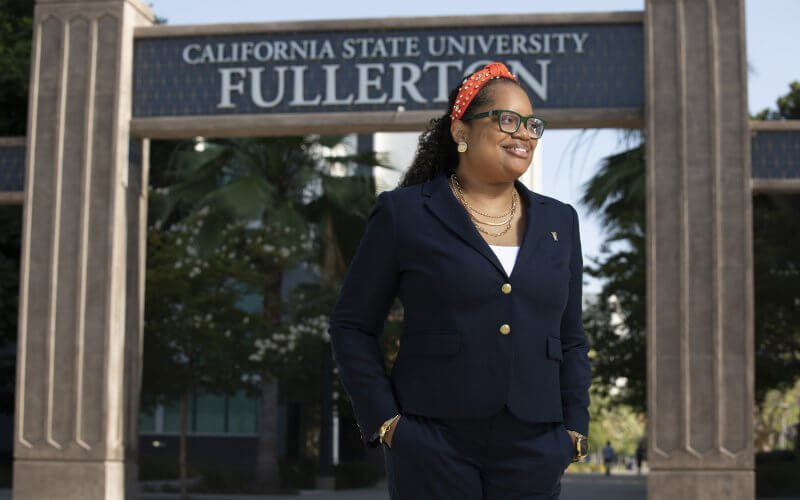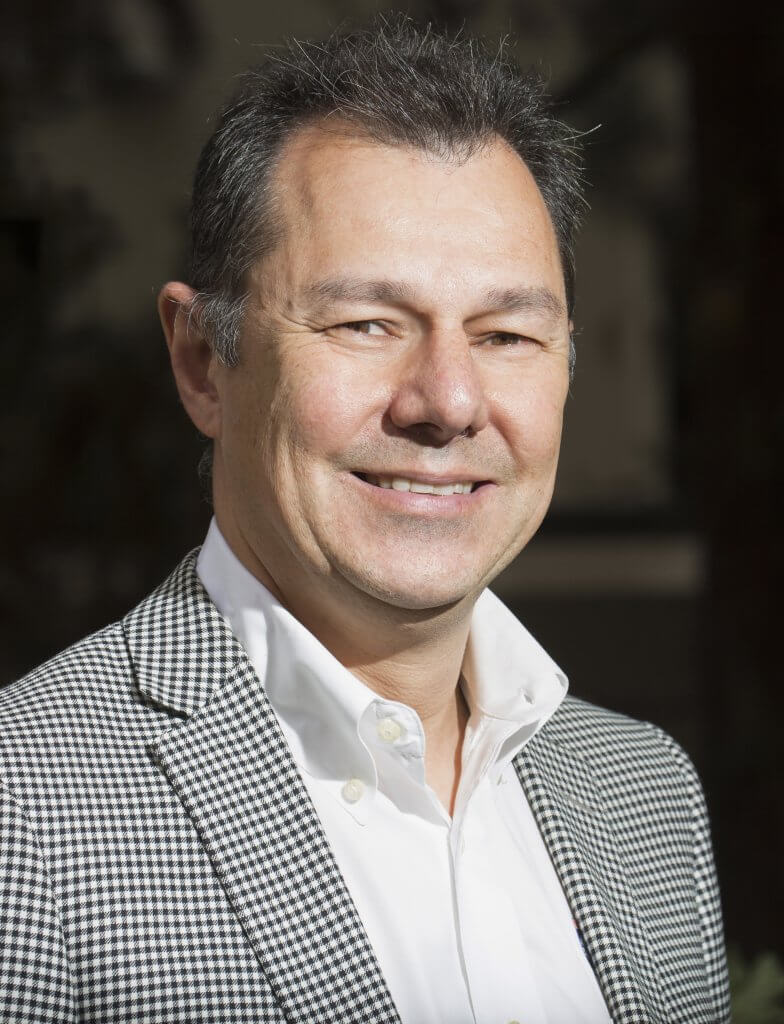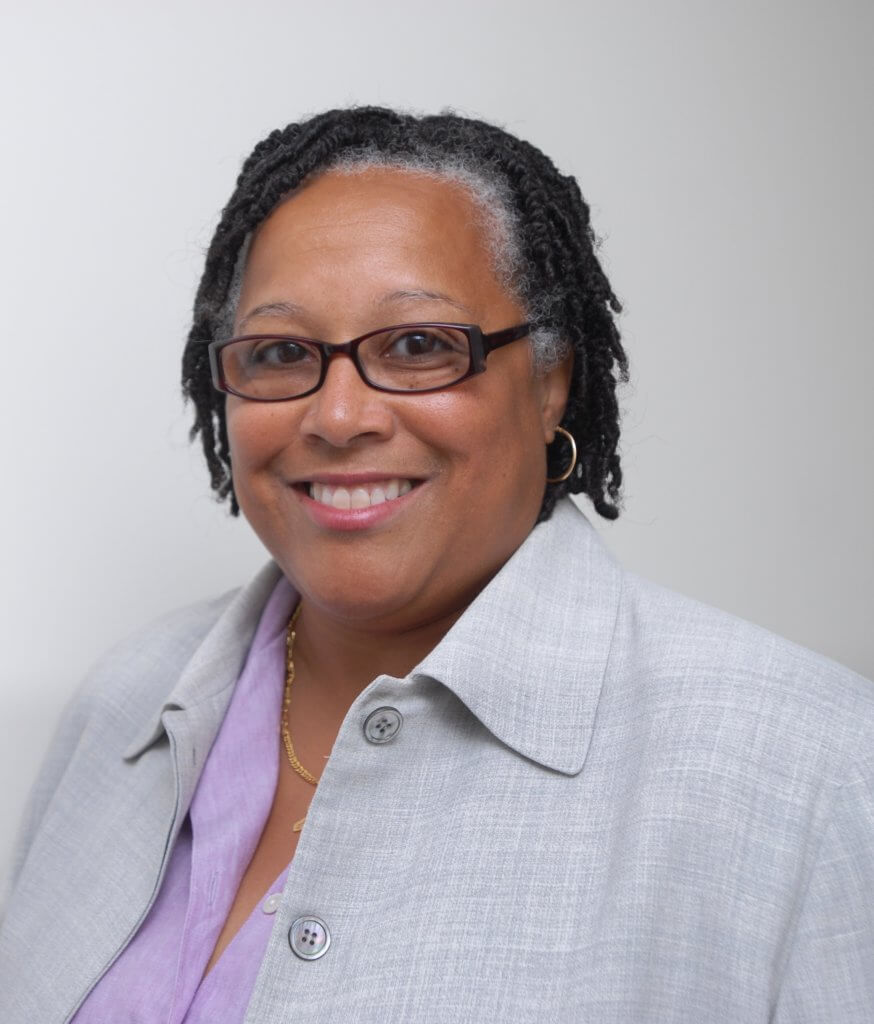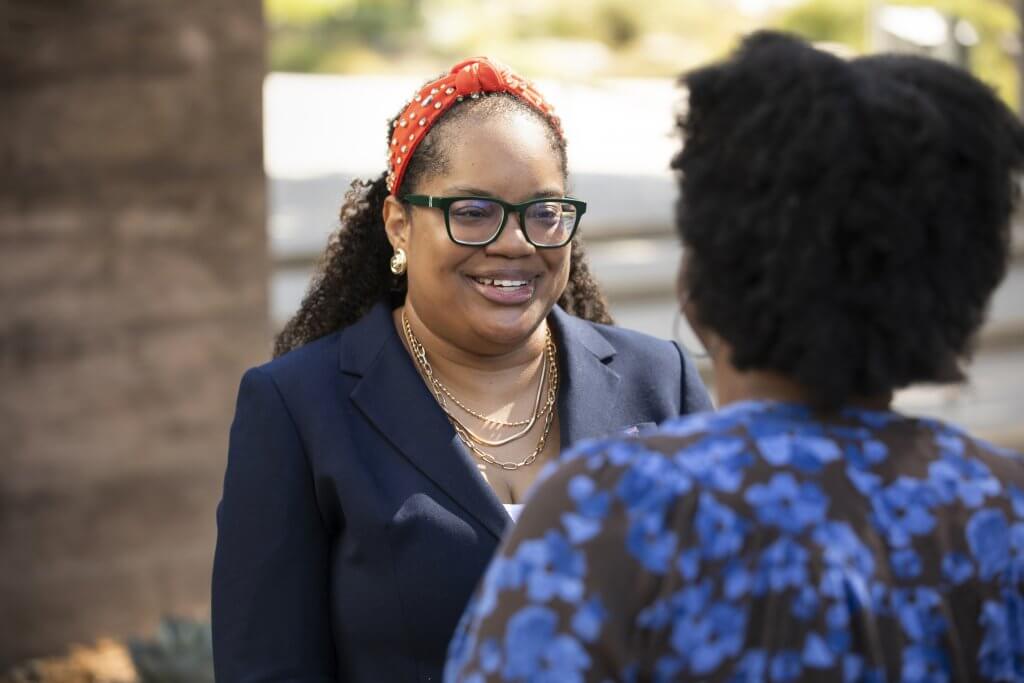
A leader in lifting Black college students to reach their academic potential, Patience D. Bryant has one mission at Cal State Fullerton.
As the inaugural executive director for Black Student Academic Success, Bryant wants to ensure that Black students succeed — from when they enter the university until they graduate and earn a CSUF diploma.
“The university must actively work toward eliminating anti-Blackness and put resources behind programming and initiatives centered on Black student success, and focus on the recruitment, hiring and retention of Black faculty and staff,” Bryant said. “Building meaningful partnerships and removing silos contributes to supporting the whole student.”

Last year, the provost’s office established the Black Student Success Working Committee to address systemic issues on campus. Group members examined anti-Black structures, policies and practices that have hindered the recruitment and persistence of Black students, staff and faculty, said Amir Dabirian, provost and vice president for academic affairs.
“Dr. Bryant brings a wealth of expertise to her role — grounded in rigorous research and extensive experience in racial equity — to elevate the university’s commitment to fostering an inclusive and equitable environment for all students, faculty and staff,” Dabirian said.
Dawn Person, professor emeritus of educational leadership, was hired as faculty adviser to the provost for Black Student Academic Success and conducted a study on how to better support and serve Black students, resulting in creating Bryant’s position.

Bryant is charged with facilitating the effort to implement a new universitywide infrastructure to foster a more integrated and culturally relevant approach to Black student academic success. This work entails engaging students, faculty, staff, alums, and university programs and units to coordinate a comprehensive effort to support Black students.
“We need to change the culture and move the needle in Black student academic success,” Person said. “We need to eliminate anti-Blackness in our practices and policies. We will never fulfill the full scope and mission of the university until we do.”
Building a Community
Bryant aims to partner across campus divisions, colleges and departments to promote cultural awareness and inclusion; address silos and barriers; and boost Black student recruitment, retention and degree completion. As part of this initiative, a second new position was created, with Shannah Johnson hired as assistant director for Black Student Success Advising Program.
Plans also include creating a Black Student Academic Success website to give students and families easy access to information, support services and academic resources tailored to their needs.
Person’s study focused on Black faculty, staff, students and alums who all reported a disconnect with the broader campus community, including feeling excluded and marginalized, said Person, director of the Center for Research on Educational Access and Leadership, which analyzed the study’s data.

Bryant, who previously served as interim deputy diversity officer in the Office of Diversity, Equity and director of Black/African American Equity at San José State University, agreed that Black students seek a sense of belonging and community in their college environment. Bryant added that students also need faculty and staff role models to mirror what they can accomplish and become in their future careers.
“Black students need to see themselves on campus and know that they are not going at this alone. It’s important that all students feel wanted and appreciated by the institution and experience this free from discrimination,” said Bryant, who earned a doctorate in conflict analysis and resolution from Nova Southeastern University in Florida.
Additionally, Bryant will help coordinate a $250,000 CSUF grant from the California State University system to expand pathways for first-year Black students, support learning communities and inclusive curriculum, and reinforce equitable searches for Black tenure-track faculty.
“The university’s comprehensive approach ensures that Black students receive the support, resources and opportunities they need to thrive academically — and beyond,” Dabirian said.